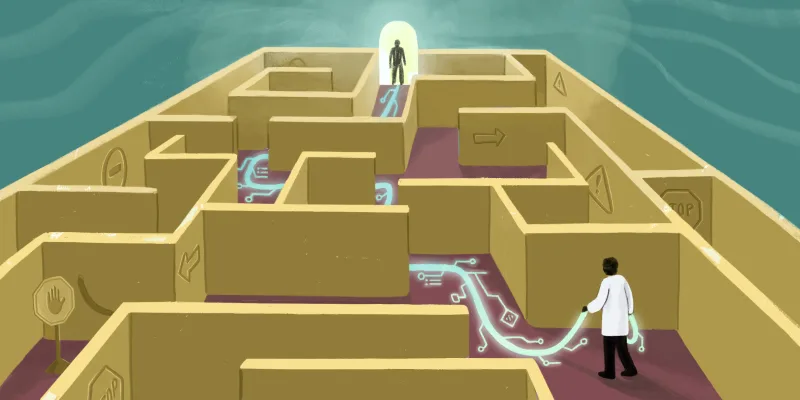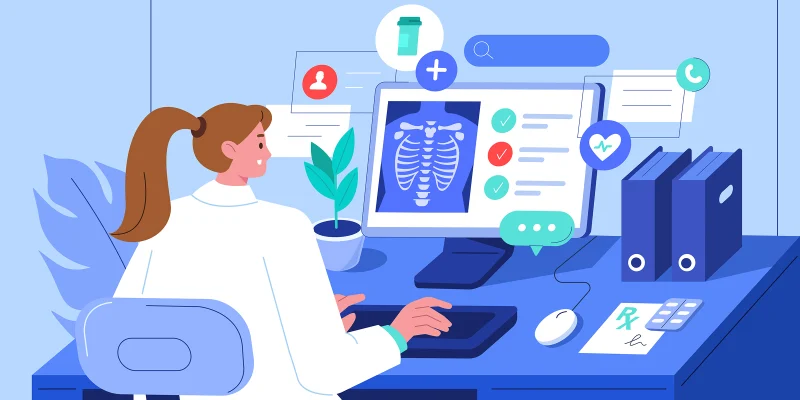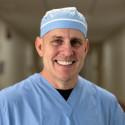I was a second-year medical student on my ENT elective, watching sinus surgery, when I first heard the phrase uttered from the attending to the resident as the former debated whether to open another bony wall during an endoscopic sinus surgery: “You know what they say, the enemy of good …” The case was a bilateral endoscopic sinus surgery for allergic fungal sinusitis. The team had opened sinus after sinus, clearing through bony septations to reveal blob after blob of chunky grayish allergic mucin.
Again, years later, now as an intern watching the senior resident, I heard, “The enemy of good …”, and again, from an attending as I performed sinus surgery myself, “The enemy of good …” reverberated through my mind. As though it should be innately understood, the aphorism was never finished in the OR. I learned from a Google search after that first sinus surgery as a medical student that it typically finishes, “The enemy of good … is perfect.”
The path to medicine is seemingly paved with perfection. You have to have perfect grades, perfect scores; the perfect pedigree of top schools, research fellowships, activities, and accolades. Medical schools need to know that their graduates will also handle failure perfectly. Consequently, for prospective doctors, even their failures must be perfect — not too serious, but serious enough to demonstrate the perfect resilient response. One might argue that carefully grooming future physicians to practice perfection is warranted. Medicine is one of the few fields in which errors can result in mortality or grave morbidity. Medical errors are tragic, socially unacceptable, and subject the erring party to financial and legal liability. My younger brother, a newly minted JD, said it well when he commented, “When I mess up, someone loses money. When you mess up, someone could lose their life.”
Yet for all this talk of perfection, mistakes happen. Disease isn’t perfect. Despite what airbrushed magazine covers might advertise, the human body certainly isn’t perfect. Patients are human. They smoke and drink. They have bleeding disorders and uncontrolled hypertension, and adipose tissue that obscures anatomical landmarks. They eat too much or not enough and forget to take their medications. In surgery, limiting surgical treatment to perfect candidates would mean very few surgeries.
Doctors are human too. As much as we try to limit it, we get distracted and tired. We forget things and miscommunicate. We err. There are layers and layers of protections against this human error, but ultimately, every doctor will make a mistake at some point. Limiting the practice of medicine to perfect physicians would mean no physicians. So, as a profession and as a society, we accept that medicine must consist of imperfect people seeking care from other imperfect people. While we can and should pursue perfection, we must do so cautiously.
Sinus surgery is relatively straightforward. The average adult has frontal, sphenoid, ethmoid, and maxillary sinuses — air-filled cavities within their skull. For some patients, the sinuses can become occluded and infected, causing pain and pressure. For patients with polyps or recurrent or chronic infection despite medication, sinus surgery is frequently the preferred treatment. In a functional endoscopic sinus surgery, the naturally occurring sinus openings are expanded using tools inserted into the nose under camera visualization to allow for improved drainage and easier access for topical medications when infection or inflammation occurs. Though simple at first glance, the sinuses themselves are made of a honeycomb of bony septa inside the skull, behind which lurk vital organs like the eyes and brain, arteries, veins, and nerves, complicating the process.
As a medical student walking into a sinus case, looking away from the screen showing the view from the endoscopic camera for even a few minutes was entirely disorienting. The surgeons broke through bony walls, making it feel like a game show with mystery doors.
Behind door number 1 — allergic mucin! Behind door number 2 — womp womp, the eye!
Luckily, I have never personally opened the orbit, and thanks to the skill of the attending surgeons I’ve worked with, I have never seen any of the residents or fellows unintentionally open the orbit either. That said, in each case, there is a moment where we decide whether to open the sinus a little more, to take down slightly more bone, or drill a wider outflow tract, and it is at this moment that time and again, I’ve heard the surgeon say, “The enemy of good ...”
There is a cost-benefit to attempting a perfect surgery when a good, sufficient surgery will serve the patient as well. Taking down one more centimeter of bone might prevent the opening from scarring closed, but it could also result in injuring an artery that gets closer to our instruments as we widen the sinus opening.
In my residency reviews, I have often been warned that my perfectionism limits my progress. Fear of failure can lead to hesitation and inefficiency, and shame after failure increases burnout and limits problem-solving and learning. There is a fine line between self-criticism driving personal growth and self-criticism that is self-defeating. In medicine, losses and failures will make themselves known. There is no reason to brand a good, imperfect job as a failure.
After decades of education and training, it feels horrifically disappointing to accept a “good” or “sufficient” effort. Like many surgeons, I want to be the best, brightest, and most skilled, with my efforts and outcomes lauded as heroic and herculean. But at the end of the day, who does that desire serve? The care that allows patients to go home and live their lives without undue risk is successful. Everything after that is hubris. Good is safe. Good is good. Good is not a failure.
I cannot promise that I will wind back my perfectionism overnight or that I will embrace “good enough” as my new career goal, but it may be time to give good the honor it deserves.
How has the pursuit of perfection affected your approach to medicine? Share in the comments!
Dr. Allison Oliva is an otolaryngology resident in Miami, FL. When she’s not at work, she enjoys walking along the water with her fiancé, drinking coffee, reading, and watching Miami Hurricanes football. Dr. Oliva is a 2024–2025 Doximity Op-Med Fellow.
Illustration by Jennifer Bogartz







